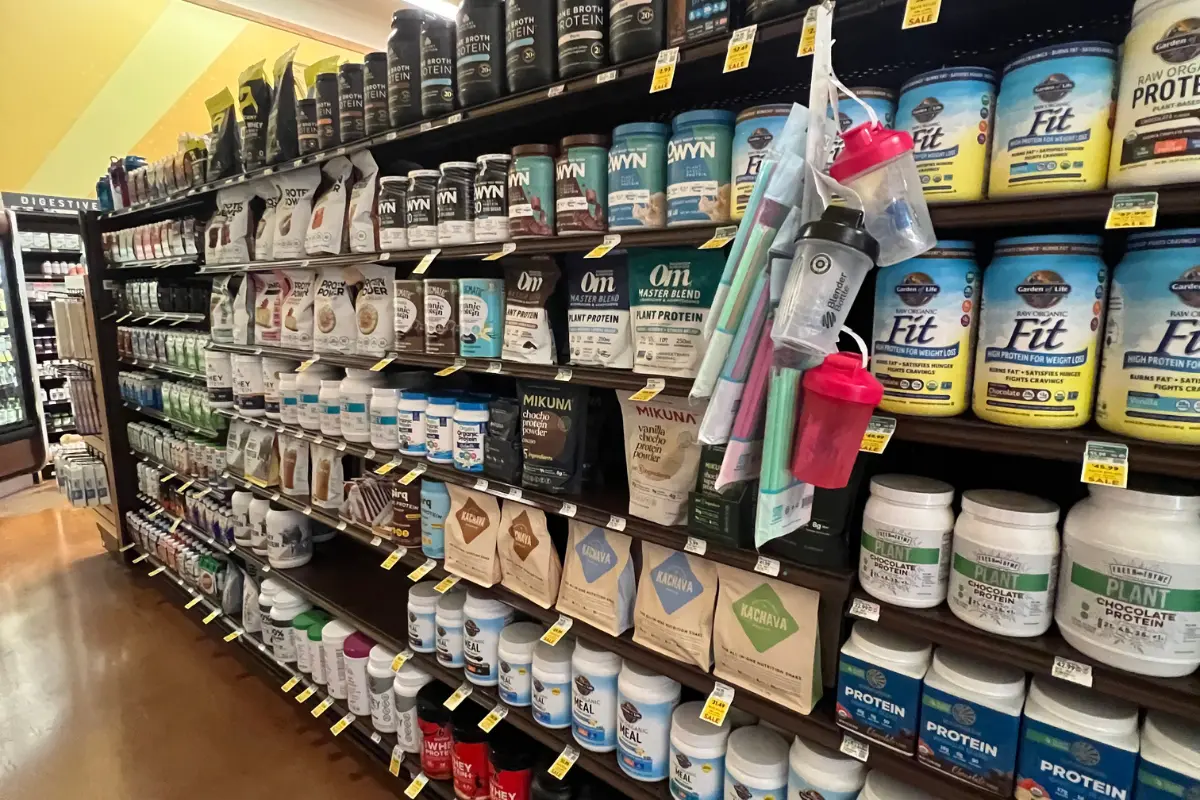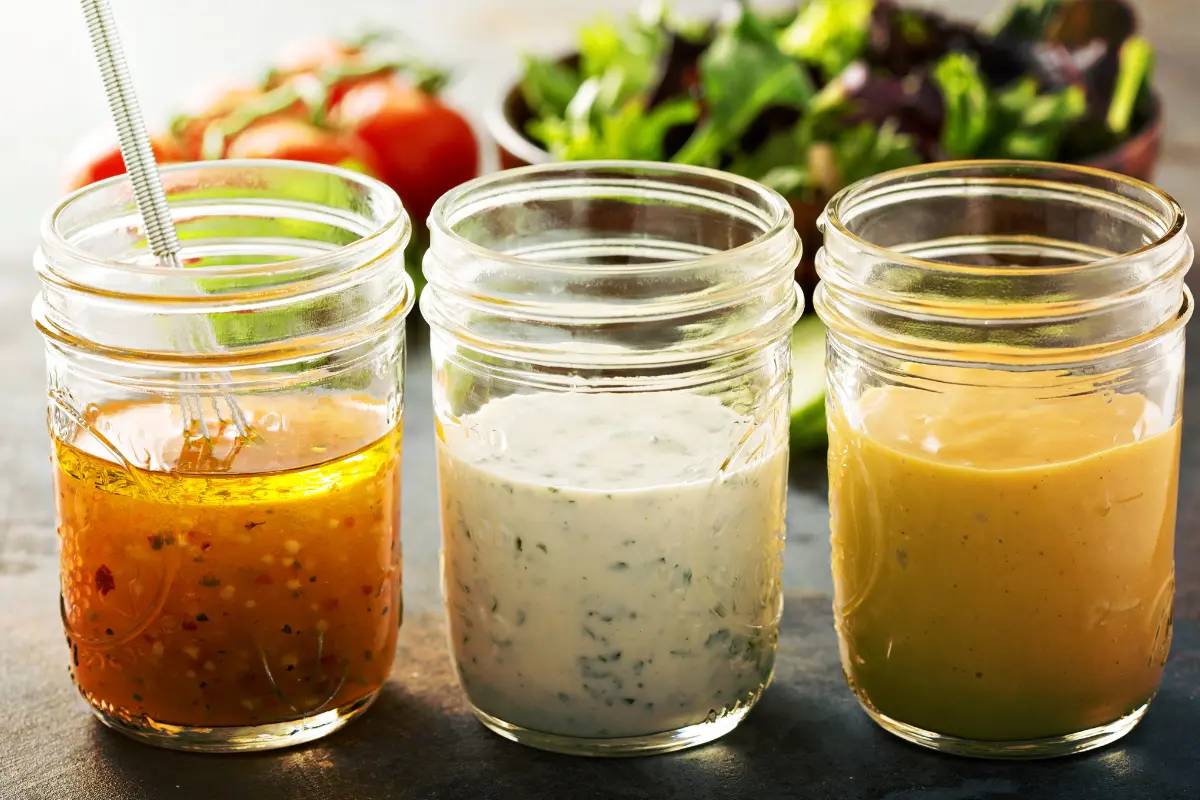
The supplement aisle of any grocery store is basically like a candy store for athletes. Faster recovery? Better workouts? And glowing skin? Tempting!
Supplements are trendy for a reason. They get a “magical” reputation: your gym buddy started taking BCAAs and their arms are looking ripped post-workout. Another friend has been adding collagen to her coffee and says her hair is growing like crazy. Or those podcast ads for greens powder… you haven’t been eating a wide variety of veggies, now that you think about it.
It’s easy to think you need supplements to succeed. But here’s the truth: they’re exactly what their name says. They’re meant to supplement a solid foundation of consistent nutrition, quality food choices, and lifestyle habits that actually move the needle. Without that base in place, supplements are just an unnecessary expense.
Check out this nutrition hierarchy we use with our clients:

Advertisement
Supplements are a tiny part of the big picture when it comes to your overall well-being. They’re like sprinkles on a sundae. Fun, helpful in certain situations, but hardly a replacement for the actual ice cream.
So before you keep reading, ask yourself:
Have I built consistent eating habits?
Am I choosing mostly nutrient-dense foods?
Am I hitting my calorie and protein targets?
Advertisement
Am I sleeping, managing stress, and moving consistently?
Nail these basics, and supplements might be able to fill in the gaps and improve your diet and lifestyle. So let’s dive in: which supplements actually deliver? Which ones should you skip?
Let’s start with a big one: protein powder.
 If you’re reading this, you already know you need protein. And like, a lot of it. Protein helps with muscle growth and maintenance, hormone production, enzyme creation, blood sugar stabilization, and more. Protein is primarily found in animal meats, dairy products, seafood, eggs, and these vegan and vegetarian sources.
If you’re reading this, you already know you need protein. And like, a lot of it. Protein helps with muscle growth and maintenance, hormone production, enzyme creation, blood sugar stabilization, and more. Protein is primarily found in animal meats, dairy products, seafood, eggs, and these vegan and vegetarian sources.
So, supplementing your diet with protein powder is a great way to increase your daily protein intake and ensure you get enough.
Now, not all protein powder is the same. Here’s a breakdown of some of the most popular powders you’ll find:
Advertisement
Whey Protein
Whey is a fast-digesting, milk-based protein powder. It’s great for post-workout recovery, meal replacement, or when using protein powder in baking.
Who it’s for: Athletes or anyone struggling to hit their protein target
Who should skip it: Vegans or people with a dairy intolerance
Alternatives: Greek yogurt, cottage cheese, animal meats, eggs, plant-based protein powders
Average cost: $1-2/serving
Advertisement
Casein Protein
Casein is another milk-based protein, but unlike whey it’s digested slowly. If you’ve ever seen a supplement marketed as overnight recovery, it was most likely casein powder.
Who it’s for: Lifters and athletes needing sustained protein release between meals or overnight, primarily used as a recovery tool
Who should skip it: Anyone avoiding dairy
Alternatives: Cottage cheese, Greek yogurt, plant-based protein powders
Average cost: $1-1.50/serving
Advertisement
Plant-Based Protein
For vegans or anyone avoiding dairy, you’re not excluded from the protein powder game! Pea, hemp, rice, or blended source protein powders are widely available. These proteins are often incomplete (meaning they miss some essential amino acids), but they’re still useful if you need help hitting your protein goal.
Who it’s for: Vegans or those limiting dairy intake
Who should skip it: No one needs to skip this one, but if you can tolerate an animal-based protein powder, that may be more effective
Alternatives: Whole food combos like beans + rice or nuts + legumes.
Average cost: $1.50-2/serving
Advertisement
Collagen
Collagen powder comes from animal connective tissue and supports joints, skin, hair, nails, and the lining of your gut. While animal-based, it is not a complete protein like casein or whey.
Who it’s for: Anyone looking for joint support or skin/hair health
Who should skip it: If your primary reason for using protein powder is to replace protein intake or boost muscle gain, this isn’t the one
Alternatives: Bone broth, gelatin, or simply prioritizing total protein intake
Average cost: $1-2/serving
Advertisement
Next up, performance-boosting supplements.
 Or, are they?
Or, are they?
Creatine
Creatine is one of the most-researched supplements, and it’s known as a powerhouse in sports nutrition. Creatine helps regenerate energy (ATP) which boosts power, strength, recovery, and even improves cognition. We do a deep dive into all things creatine in this blog post if you want to learn more.
Who it’s for: Strength athletes, competitors, vegetarians and older adults
Who should skip it: Those with kidney disease (consult a doctor, please!)
Alternatives: Red meat and seafood provide some creatine, but not enough to maximize stores
Advertisement
Average cost: $0.15-0.30/serving (super cost-effective!)
Pre-Workout
Typically a mix of caffeine, beta-alanine, nitric oxide boosters, and/or creatine, pre-workout supplements are designed for better energy and focus while you’re training.
Who it’s for: Athletes needing an extra push before training
Who should skip it: Those sensitive to caffeine, or with heart concerns
Alternatives: A solid night of sleep, a cup of coffee, or quick-digesting carbs before training
Advertisement
Average cost: $0.50-1.50/serving
BCAAs (Branched-Chain Amino Acids)
“Branched chain” refers to the chemical structure of three essential amino acids: leucine, isoleucine, and valine. BCAAs are quickly absorbed and are used directly in your muscles for energy instead of going to your liver first. This makes them a popular supplement to promote muscle strength, growth, and recovery before, during, and after training sessions.
Who it’s for: Fasted exercisers, strength training vegans/vegetarians
Who should skip it: Most people who are already hitting their protein targets do not need to supplement with BCAAs
Alternatives: Whole food protein sources, whey protein, soy protein
Advertisement
Average cost: $0.50-1/per serving
Supplements for overall health and recovery:
 Electrolytes
Electrolytes
Electrolytes are minerals that help regulate fluid balance, nerve function, and muscle contractions. While you can get them naturally through food and fluids, electrolyte mixes, powders, and tablets have exploded in popularity.
Who it’s for: Endurance athletes, heavy sweaters, or those training in hot, humid conditions
Who should skip it: Anyone already eating a balanced diet with adequate fluid intake
Alternatives: Coconut water, adding a pinch of salt to your water, or water + meals with a mix of protein, carbs and sodium
Advertisement
Average cost: $1-2/serving
Magnesium
Magnesium is a mineral that supports muscle relaxation, sleep, and energy production. There are a few different forms of magnesium supplements available, for the purpose of this blog you’re most likely looking for magnesium glycinate (promotes relaxation and sleep) or magnesium malate (thought to be helpful for muscle fatigue.)
Who it’s for: Those with sleep issues or muscle cramps
Who should skip it: Anyone with kidney disease should check with their doctor
Alternatives: Dark leafy greens, nuts, seeds, legumes
Advertisement
Average cost: $0.10-0.20/serving
Probiotics
Probiotic supplements come in many forms, but all are essentially bacteria meant to support digestion, immunity and gut health.
Who it’s for: Those with digestive concerns, recent antibiotic use, or specific medical needs
Who should skip it: People expecting this to “fix” their gut health—food still matters most
Alternatives: Yogurt, kefir, sauerkraut, kimchi, fiber-rich foods
Advertisement
Average cost: varies widely, $0.50–3+/serving
Fish Oil (Omega-3s)
Fish oil provides two essential omega-3 fatty acids: EPA and DHA. Omega-3s reduce inflammation and support cognitive function, heart health, and more.
Who it’s for: Anyone not eating 2–3 servings of fish per week
Who should skip it: Those already eating salmon, sardines, or mackerel regularly
Alternatives: Flaxseed, chia seeds, walnuts
Advertisement
Average cost: $0.20-0.50/serving
Multivitamin
You know this one—a blend of vitamins and minerals meant to cover potential dietary gaps.
Who it’s for: People with restricted diets, low appetite, or diagnosed deficiencies
Who should skip it: Anyone using it as an excuse to eat poorly
Alternatives: A balanced, varied diet with fortified foods
Advertisement
Average cost: $0.10-0.25/serving
Greens Powder
Greens powders are blends of dehydrated vegetables. fruits and herbs ground into a dissolvable powder, marketed as a micronutrient gap filler. See what our RDs think of greens powders here!
Who it’s for: People consistently short on produce, picky eaters, or travelers wanting a nutrient boost
Who should skip it: Anyone assuming it can replace real veggies
Alternatives: Frozen vegetables, pre-chopped salads, smoothies with actual produce
Advertisement
Average cost: $1.50-3/serving
Remember: sprinkles, not the sundae.
Bottom line: supplements should be the last 5–10% of your nutrition plan. Build the base first, then sprinkle in what makes sense for you.
Supplements are cool, but they’re never replace a foundation of solid nutrition, consistent habits, and a plan that actually works for you. That’s where our 1-on-1 coaching comes in. We’ll help you cut through the noise, get clear on your priorities, and build a nutrition strategy that lasts (with or without supplements).
Schedule a Free Intro Call
Working Against Gravity has led the macro tracking and health space for over a decade. Our team doesn’t just understand the science of nutrition—we’ve spent years mastering the art of tailoring it to fit your life. That means no cookie-cutter plans, just real strategies that have worked for over 30,000 people.
Schedule a free call with our team to learn how working with a 1-on-1 WAG coach will help you reach your goals.



